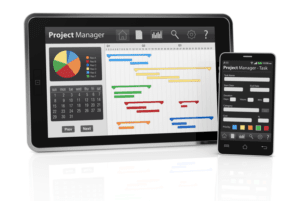Donald Trump Jr Laughs At Own Accounting Admission In Newly Released Deposition Video

The first case can be more confrontational, while the latter case can be more collegial. An introvert working in public accounting can have a more difficult time, due to the social and confrontational aspects of the work. A public accountant is trained in the analysis of accounting systems, collecting evidence, and testing to see if assertions are correct.
Though many states do not require candidates to hold an accounting degree, educational requirements usually include a minimum number of upper-level accounting courses. Thus, earning an accounting bachelor’s can help you https://www.bookstime.com/ fulfill the educational guidelines for your state. Many jurisdictions also stipulate that aspiring CPAs complete credits in related areas, such as economics, finance, business administration, and/or business management.
Public Accounting: Careers, Skills, and How to Become a CPA
CPAs can also perform professional functions that uncertified accountants cannot legally offer. Steven E. Bender is a CPA and CFP with a Master’s degree in taxation. Continuing professional education (CPE) is also required to maintain licensure.

A CPA is a financial professional licensed by a state board to provide accounting services to the public. A CPA performs accounting duties such as tax preparation, auditing, and consulting. An accountant is an individual who professionally practices accounting. The career path of a public accountant is to advance through the positions of auditor and audit manager to eventually become an audit partner. An audit partner is expected to manage audit relations and bring in new business.
Develop career skills and credentials to stand out
Many states have passed versions of the Uniform Accountancy Act (UAA). This has helped to create more consistency in licensing across states so that you can be mobile while working in this profession. Be certain to understand the requirements in your state and any states you intend to work in to ensure your license is accepted. Therefore, you can take on additional duties related to the Internal Revenue Service (IRS) and Securities and Exchange Commission (SEC) that not all accountants can perform. If you are considering a career in either form of accounting, an excellent place to start is by earning your accounting bachelor’s degree at Bryant & Stratton College. Before you apply to get your degree, take a moment to learn more about both of these critical financial roles.
In private industry, you will be limited to what your company has, and that in turn will be limited by budgetary constraints and the ordering of other (often nonfinance) priorities. what is public accounting is good for people that prefer variety, because clients and engagements are always changing. In private industry, things can be much more routine, especially if you are not in a high-growth or distressed scenario. Finally, public accounting tends to favor project management skills, whereas private industry is more about day-to-day management with less-structured workflows that require you to personally organize your own work. A certified public accountant (CPA) is an accounting professional who has met certain education, exam, and experience requirements for licensure by a state board of accountancy. A public accountant may be certified as a CPA (certified public accountant).
History of profession
The career path of a private accountant can begin in one of several specialty areas and advance into an assistant controller position, with eventual promotion to controller and then to chief financial officer (CFO). The CFO position is responsible not only for all internal accounting functions, but also treasury, risk management, and investor relations. The most popular CPA career paths include working for public accounting firms, offering accounting services as self-employed professionals, and working on behalf of government and nonprofit agencies. In addition to his public accounting experience, Steven spent 7 years as the CFO of a large privately held company, overseeing their successful sale to a private equity firm.
If a public accountant owns their own business, these would be equally valuable characteristics. LHH recently released its 2024 Salary Guide, which includes pay expectations for multiple positions in accounting and finance. The guide reflects a cautiously optimistic outlook for 2024, with hopes for reduced inflation and no recession. As a CPA, it’s very rewarding to be able to make a direct and positive impact on a business client, especially with a not-for-profit that makes a real difference in our community. I also really enjoy the client education aspect of my work when I can help client accounting team members learn additional skills or be a resource to answer questions and resolve problems.
HuffPost Personal
Fee waivers at private institutions vary by participating institution during the month. For those in public accounting, the senior position would be as a business owner or firm executive. For a private accountant, that top role would be Chief Financial Officer (CFO). To acquire certification, CPA candidates need at least a bachelor’s degree and the equivalent of 150 semester hours of college credit. One year of relevant professional experience in academia, government, private industry, or public practice is also a common standard.
‘This is Table Stakes,’ and Other AI insights From AAM’s Emerge … – INSIDE Public Accounting
‘This is Table Stakes,’ and Other AI insights From AAM’s Emerge ….
Posted: Tue, 10 Oct 2023 15:50:47 GMT [source]
The work environment is another significant difference between public and private accounting. Both kinds of accounting demand social skills, but of different types. A public accountant must be able to interview clients regarding their systems, and politely discuss possible system failures (essentially criticizing the work of clients). A private accountant needs to work with other parts of the company to develop or revise accounting systems and supporting procedures.
All the requirements for qualifying for the tax credit still apply — for both EV buyers and automakers. That’s how Congress wanted these incentives to work when they passed them as part of the Inflation Reduction Act. But when it was rolled out last year, it still required EV buyers to claim their credit when they filed their taxes, a more burdensome route.

